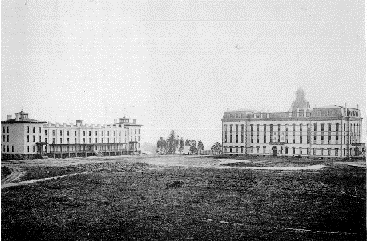Rand Paul Should Answer These Drug War Questions When He Speaks at Howard University This Week

On Wednesday, Sen. Rand Paul (R-Ky.) will speak at Howard University in Washington, D.C. Topics: GOP outreach to minority voters, as well as mandatory minimums, the war on drugs, and the precarious health of the Fourth, Fifth, and Sixth Amendments.
Considering that Paul represents the second-to-last state to ratify the 13th Amendment, that Howard was founded in 1867 to educate freedmen, and that the war on drugs has--according to Michelle Alexander--resulted in "[m]ore African American men in prison or jail, on probation or parole than were enslaved in 1850," the event promises to be genuinely historic. And it'll be historic even if Paul repeats only what he's already said; things like, "Our prisons are full of nonviolent criminals" and "Mandatory minimums have had a disproportionate effect on the African-American community."
But if the only thing Paul does on Wednesday is make a case for reforming federal mandatory minimums, he'll have set a precedent for modern GOP senators while barely moving the ball forward. This is because (as I wrote last month) the U.S. Senate is probably the last place in America where it's considered revolutionary to say, "Hey, maybe we should not cage nonviolent drug offenders for the rest of their natural lives."
To be somewhat more frank: Paul has done an admirable job of saying what penalties he finds to be egregious, but he's yet to say what penalties he thinks are fitting for drug users. He'll need some pushing. Howard students and faculty can do that. Here are some suggestions.
1.) During an appearance on Fox News Sunday, Paul answered a question about being "lenient" on drugs by saying, "The main thing I've said is not to legalize them, but not to incarcerate people for extended period of times. There are people in jail for 37, 50, 45 years for nonviolent crimes. And that's a huge mistake. "
A good follow-up would be, If 37 years is too long, what's the right amount of time for a nonviolent, low-level drug offender to spend behind bars? And if Paul doesn't support legalization, how does he feel about decriminalization? Or, repealing federal prohibition, which would allow states to determine their own drug policies?
2.) During that same Fox appearance, Paul said, "Look, the last two presidents could conceivably have been put in jail for their drug use. And I really think look what would have happened: It would have ruined their lives. They got lucky, but a lot of poor kids, particularly in the inner city, don't get lucky, they don't have good attorneys and they go to jail for these things and I think it's a big mistake."
Does Paul believe that jail is the only bad thing that can result from a drug arrest? Does he think, for instance, that President Obama would still be president if he had a booking photo floating around? Or if instead of serving time, he'd simply been unable to sit for the bar due to a felony cocaine conviction?
3.) Last November, Paul told ABC, "I think for example we should tell young people, 'I'm not in favor of you smoking pot, but if you get caught smoking pot, I don't want to put you in jail for 20 years.'"
Considering that a) no one does 20 years in jail for smoking pot (dealing is another story), and b) that the consequences of a drug offense aren't limited to incarceration, this quote provides another opportunity to ask Paul not only what punishments he opposes, but what punishments he thinks are appropriate. It might also be good if someone asks him about drugs other than, say, marijuana, which D.C. residents will soon be able to buy legally in a shop five minutes from Paul's office.
Oh, hey! That might be a good thing to ask about as well!


Show Comments (28)